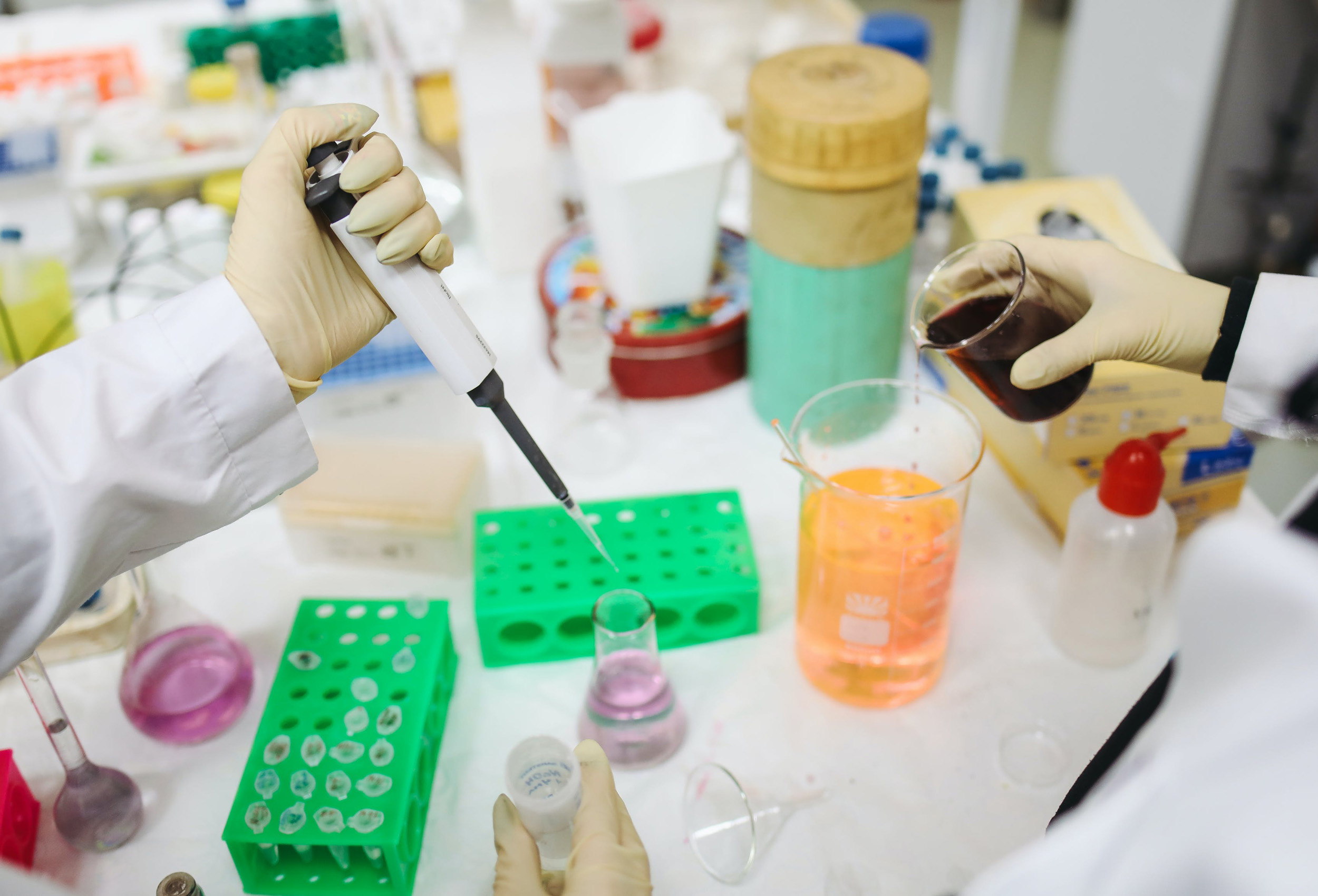If you aspire to pursue a profession in the scientific field, one potential avenue to explore is a biochemistry career. Individuals involved in this laboratory-based discipline typically need to acquire advanced education at the university level. Gaining a comprehensive understanding of biochemistry and familiarizing yourself with the various possibilities that come with a college degree can assist you in determining whether this field aligns with your interests and goals.
In this article, we will explore the concept of biochemistry, examine the academic requirements for obtaining a degree in biochemistry, delve into the career opportunities available in this field, and provide a comprehensive list of eight potential occupations within the realm of biochemistry.
What is Biochemistry?
Biochemistry involves the use of chemistry to examine various biological mechanisms on a cellular and molecular scale. It encompasses both the fields of life science and chemical science due to its complex nature. Biochemists employ chemistry to investigate living organisms to gain a deeper comprehension of biological processes. The insights they gather from their research can be applied to enhance forensic methodologies, develop effective cleaning agents, enhance nutritional quality in food, and gain insights into the transmission of diverse diseases.
The Nature of Coursework in a Biochemistry Degree
When undertaking a biochemistry degree, whether at the bachelor’s, master’s, or doctorate level, there are several subjects that individuals may study.
- Genetics
- Cellular Biology
- General Chemistry
- Physical Chemistry
- Organic Chemistry
- Kinetics and Thermodynamics
- Cells and Systems
- Physics
- Molecular Biology
- Biomedical Research
- Chemical Analysis
- Biomedical Research
Proven Pointers for Entering the Realm of Biochemistry
If you aspire to become a biochemist or pursue a career in the biochemistry field, acquiring exemplary scientific skills, knowledge, and capabilities is vital. These attributes can be obtained through relevant coursework and practical experience. The following recommendations can help you navigate a successful path in this profession:
- To obtain a high school diploma, you have two options: graduating from high school or obtaining a GED (General Educational Development) certificate. It is recommended to enroll in courses such as physics, chemistry, mathematics, and biology during high school. This will provide you with a foundational understanding of key scientific principles that you will further delve into during your bachelor’s degree program.
- To pursue a career in biochemistry, it is essential to acquire a higher-level education. The majority of employers will expect candidates to hold a minimum of a bachelor’s degree in biochemistry, biology, chemistry, or a closely related field. However, for those seeking broader prospects and the ability to engage in applied research and product development, pursuing a master’s or doctorate is highly recommended. These advanced credentials can open up additional opportunities and elevate your professional journey in this field.
- When it comes to choosing elective courses, numerous programs provide options based on your specific interests within the field of biochemistry. These courses can be beneficial in furthering your education, particularly if you plan to pursue a master’s degree in medical, biotechnology, or veterinary studies.
- To gain familiarity with laboratory work, individuals pursuing biochemistry careers often have the opportunity to participate in lab work as part of their coursework. This allows them to become acquainted with the tools and overall laboratory environment. Additionally, gaining hands-on training and experience can be achieved by undertaking lab internships.
Exciting Career Paths to Explore with a Biochemistry Degree
After obtaining a degree in biochemistry, individuals have the opportunity to enter various professional fields, such as forensic science, chemistry, and biology. Here are eight potential job options that can be pursued with this qualification.
As pharmacodynamic assay is becoming increasingly important in clinical development this could be an option as a specialism. These assays can be used to aid in the selection of a lead candidate and to understand the mechanism of action of a drug. The use of biomarker assays can provide an early indication of drug efficacy, helping to reduce attrition rates, optimize clinical development programs, and provide critical information around safety parameters.
1. Expert in Crime Scene Investigation
The average annual salary nationwide is $40,247.
A knowledgeable audience will find this paraphrased text informative and easily understandable. It is written in a neutral tone, making it suitable for various contexts. The domain is general, so the paraphrased text can be applied to different fields. The intention is to inform the audience about the primary duties of a forensic science technician.
2. Forensic Scientist
The average annual salary across the country stands at $60,790
Forensic scientists have a range of crucial tasks that involve handling evidence and aiding law enforcement agencies in the prosecution of criminal suspects. These tasks include analyzing biological evidence found at crime scenes, tracking illicit substances found in bodily fluids and tissues, overseeing and maintaining crime scenes until appropriate personnel arrive, and conducting post-mortem examinations on victims. Additionally, they are tasked with documenting crime scenes through photography and sketches to accurately record the surroundings.
3. Microbiologist
The average annual salary nationwide is $75,605.
Primary duties: A microbiologist is a scientist who studies microorganisms. They study how microorganisms interact with their surrounding environments so they can help determine the causes of diseases and propose solutions. They use various equipment like incubators, test tubes, autoclaves, and microscopes to study parasites, fungi, algae, viruses, and bacteria.
4. Biochemist
The average annual salary nationwide amounts to $76,094.
A knowledgeable individual in the general domain would benefit from learning about the primary responsibilities of a biochemist. This expert is engaged in conducting in-depth studies and experiments to understand how chemical processes impact various life forms’ composition and functions. In addition to designing and executing scientific experiments, analyzing extensive data sets and recording results is a crucial aspect of their role. The findings obtained by biochemists can be used to enhance chemical compounds used by medical professionals for disease treatment and management.
5. Biologist
The average annual salary across the nation is $77,992.
As a biologist, one’s main responsibilities involve examining plant life and various organisms to uncover insights into their behaviours, compositions, and habitats. Additionally, researchers delve into understanding the impact of other beings and organisms on the environments they inhabit. The role also entails identifying, studying, and categorizing animals, plants, and ecosystems, as well as collecting samples and measurements of these organisms. Moreover, biologists strive to gain a deeper understanding of the diets and behaviours of these organisms and diligently maintain meticulous and precise records about their scientific investigations.
6. Research Scientist
On average, individuals in the United States earn an annual salary of $87,112.
Primary duties: A research scientist carries out experiments on different scientific concepts to prove or disprove certain scientific theories or insights. Other job responsibilities include identifying innovative scientific research ideas, heading up data collection processes and efforts, and publishing papers containing important findings from research projects in scholarly journals. Depending on their level of experience, they may also supervise junior scientists within their organization to ensure experiments are conducted effectively.
7. Biochemistry professor
The average salary across the country is $93,323 annually.
A biochemistry professor is employed by an educational institution, such as a university or college. They are responsible for imparting knowledge about various aspects of biochemistry to their students. Their main responsibilities include delivering lectures, assessing students through tests, quizzes, and assignments, and being available during office hours to address any queries related to the lectures. Additionally, they may supervise laboratory experiments conducted by students and design syllabi that align with the program’s mandatory coursework.
8. Chemical engineer
The average salary across the country is $93,957 annually.
Chemical engineers utilize their knowledge of chemistry, biology, physics, and mathematics to address issues about the manufacturing and utilization of chemicals, pharmaceuticals, food, fuel, and various other products. They are responsible for creating and optimizing processes for large-scale production, as well as overseeing on-site operations. Furthermore, they play a crucial role in developing and implementing strategies to achieve the objectives of chemical companies while also enhancing the effectiveness and quality of chemical processes.

